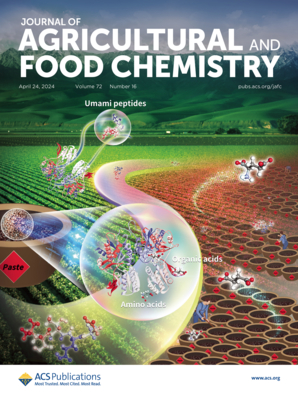合成生物学中以rubisco为中心的碳保护策略。
IF 6.2
1区 农林科学
Q1 AGRICULTURE, MULTIDISCIPLINARY
引用次数: 0
摘要
不断升级的全球气候危机迫切需要具有更高碳效率的生物制造技术。核酮糖-1,5-二磷酸羧化酶/加氧酶(Rubisco)是Calvin-Benson循环中催化二氧化碳固定的中心酶,其效率较低,限制了其工业应用。本文综述了Rubisco的基本研究,为其在工程和生物制造中的应用奠定了基础。我们首先概述了Rubisco的发现、系统分类和分子进化,然后阐明了其激活和抑制机制的结构动力学。随后,我们提供了五种酶效率增强策略的第一个系统合成,从经典的定向进化到人工智能驱动的理性设计。自养和异养微生物利用Rubisco合成生物基产品的最新进展也进行了严格审查。由此产生的跨尺度设计框架集成了进化生物学、结构动力学和合成生物学,为可持续的、碳中性的生物制造提供了可扩展的范例。本文章由计算机程序翻译,如有差异,请以英文原文为准。
Rubisco-Centric Strategies for Carbon Conservation in Synthetic Biology.
The escalating global climate crisis urgently demands biomanufacturing technologies with higher carbon efficiency. Ribulose-1,5-bisphosphate carboxylase/oxygenase (Rubisco), the central enzyme catalyzing carbon dioxide fixation in the Calvin-Benson cycle, exhibits low efficiency, thereby limiting its industrial application. This review summarizes fundamental Rubisco research, laying the foundation for its efficiency-enhancing engineering and biomanufacturing applications. We first outline the discovery, systematic classification, and molecular evolution of Rubisco, and then elucidate the structural dynamics underlying its activation and inhibition mechanisms. Subsequently, we provide the first systematic synthesis of five enzyme-efficiency enhancement strategies, spanning classical directed evolution to artificial intelligence-driven rational design. Recent advances in the utilization of Rubisco by autotrophic and heterotrophic microorganisms for the synthesis of biobased products are also critically examined. The resulting cross-scale design framework integrates evolutionary biology, structural dynamics, and synthetic biology, offering an extensible paradigm for sustainable, carbon-neutral biomanufacturing.
求助全文
通过发布文献求助,成功后即可免费获取论文全文。
去求助
来源期刊
CiteScore
9.90
自引率
8.20%
发文量
1375
审稿时长
2.3 months
期刊介绍:
The Journal of Agricultural and Food Chemistry publishes high-quality, cutting edge original research representing complete studies and research advances dealing with the chemistry and biochemistry of agriculture and food. The Journal also encourages papers with chemistry and/or biochemistry as a major component combined with biological/sensory/nutritional/toxicological evaluation related to agriculture and/or food.

 求助内容:
求助内容: 应助结果提醒方式:
应助结果提醒方式:


